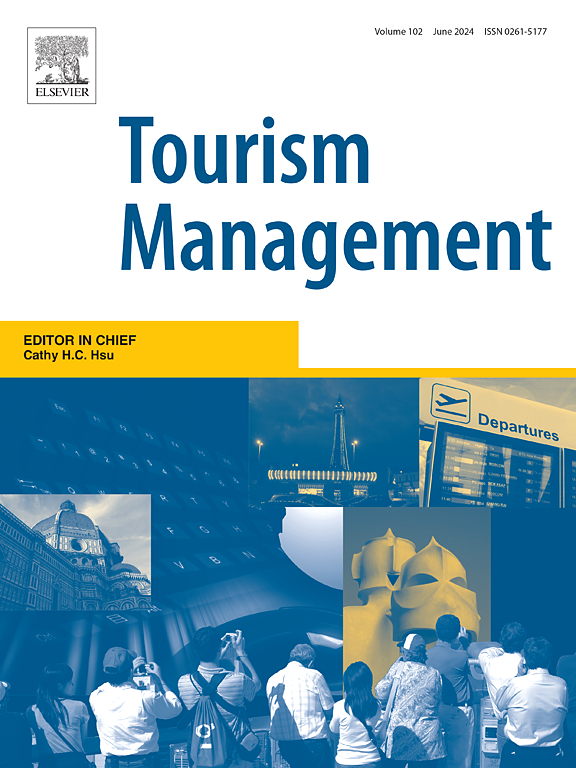Passengers as defenders: Unveiling the role of customer-company identification in the trust-customer citizenship behaviour relationship within ride-hailing context
IF 10.9
1区 管理学
Q1 ENVIRONMENTAL STUDIES
引用次数: 0
Abstract
Ride-hailing platforms such as Didi, Uber, and Lyft have changed the travel industry. Promoting the passengers' trust in platform and customer citizenship behaviour (CCB) is both challenging and important. This study employed a mixed-methods design, consisting of 21 interviews and 351 online surveys, to develop and examine the trust-CCB model in the ride-hailing context. Our findings reveal that platforms can foster passengers' trust by sending service-related signals (i.e., service quality and structure assurance) and a firm-related signal (i.e., platform reputation). Customer-company identification (CCI) mediates the relationship between passengers' trust and CCB, where passengers engage in CCB by providing recommendations, exhibiting forgiving behaviour, providing feedback, and participating in research in ride-hailing. Additionally, firm-related signals, including platform size and reputation, enhance the positive relationship between trust and CCI. These findings contribute to the body of knowledge on trust, CCB, and signaling theory, providing potential practical implications for ride-hailing platforms.
乘客是捍卫者:揭示顾客与公司之间的认同在乘车旅行背景下信任与顾客公民行为关系中的作用
滴滴、优步和 Lyft 等打车平台改变了出行行业。提升乘客对平台的信任度和客户公民行为(CCB)既具有挑战性,又十分重要。本研究采用混合方法设计,包括 21 个访谈和 351 个在线调查,以开发和研究乘车环境下的信任-公民行为模型。我们的研究结果表明,平台可以通过发送服务相关信号(即服务质量和结构保证)和公司相关信号(即平台声誉)来促进乘客的信任。顾客-公司认同(CCI)是乘客信任与 CCB 之间关系的中介,乘客通过提供建议、表现出宽容行为、提供反馈和参与乘车研究来参与 CCB。此外,与公司相关的信号,包括平台规模和声誉,增强了信任与 CCI 之间的正相关关系。这些研究结果为有关信任、CCB 和信号理论的知识体系做出了贡献,为打车平台提供了潜在的现实意义。
本文章由计算机程序翻译,如有差异,请以英文原文为准。
求助全文
约1分钟内获得全文
求助全文
来源期刊

Tourism Management
Multiple-
CiteScore
24.10
自引率
7.90%
发文量
190
审稿时长
45 days
期刊介绍:
Tourism Management, the preeminent scholarly journal, concentrates on the comprehensive management aspects, encompassing planning and policy, within the realm of travel and tourism. Adopting an interdisciplinary perspective, the journal delves into international, national, and regional tourism, addressing various management challenges. Its content mirrors this integrative approach, featuring primary research articles, progress in tourism research, case studies, research notes, discussions on current issues, and book reviews. Emphasizing scholarly rigor, all published papers are expected to contribute to theoretical and/or methodological advancements while offering specific insights relevant to tourism management and policy.
 求助内容:
求助内容: 应助结果提醒方式:
应助结果提醒方式:


